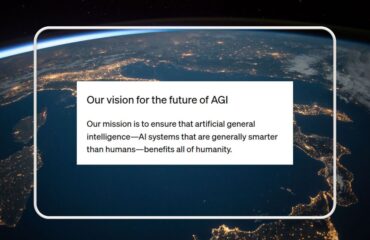
Image by Lisa Caroselli, of Pixabay
The MIT Technology Review recently featured a “little-known group setting the corporate climate agenda.” Called The Science Based Targets Initiative (SBTi), the environmental standard-setting and measuring group receives little attention in the media and in public discussion, but it is well-known to major global companies.
SBTi announced that, at the end of 2022, “more than 4,000 companies covering over a third of the global economy’s market capitalization, were setting targets or committing to do so via the SBTi.” Six months ago, the White House proposed SBTi’s standards as a basis for the selection of major U.S. federal government contractors, which would be required “to publicly disclose their greenhouse gas emissions and climate-related financial risks and set science-based emissions reduction targets.”
SBTi is a partnership between global charity CDP, the United Nations Global Compact, World Resources Institute (WRI) and the World Wide Fund for Nature (WWF). The SBTi explains its process to help businesses remain within the agreed 1.5°C global temperature increase limit as:
- Defining and promoting best practice in emissions reductions and net-zero targets “in line with climate science.”
- Providing technical assistance and expert resources to companies in setting “science-based targets in line with the latest climate science.”
- Bringing together a team of experts to provide companies with “independent assessment and validation of targets.”
The SBTi charges a fee for its work, and in the MIT Technology Review feature the primary criticism of SBTi was for the group’s trustworthiness in setting guidelines and measurements that some see as not “adequately aggressive, equitable, and clear.” SBTi has also been criticized for treating large and profitable polluters “the same way as emerging firms in poor countries with limited resources to alter their business practices,” and for allowing companies to select exceptionally high baselines for target reductions.
SBTi’s response to the criticism highlights the group’s independence from its corporate clients, that it does not validate the accuracy of data provided by corporate clients, and that its assessments undergo three levels of validation.
Establishing Trust with Data, Disclosure, and Technology
In any human endeavour, however well-intentioned, trust is neither easily obtained nor sustained. Naturally, we fear the motives behind actions that are hidden from plain sight, especially where there is an incentive for profit. We also tend to discount conclusions made from data lacking generally-agreed limits and general verifiability.
We live in a time in which data holds a tremendous value – in fact, data-trading is a business that generates more than $200 billion of revenue annually. Clearly, we have the technology to gather, buy, and sell data, but we also have the technology to disclose data broadly and clearly.
The SBTi’s public website discloses a significant amount of data, including some data specific to its corporate clients. Companies voluntarily participating in SBTI’s program, however, naturally will not permit the disclosure of sensitive data that competitors would exploit, or that would decrease profits from negative publicity or boycotts of their products. The disclosures are, therefore, constrained by the self-interest of the participants.
Standard-setting, and the monitoring and maintenance of standards, requires general agreement not only of the businesses subjected to the standards but also of the public consumers. In our call for the establishment of a Natural Futures Market, we set out 5 bases for generally agreed standards on the value of Nature’s resources.
To obtain general agreement on its mission not just from business clients and the White House but, more powerfully, the public, SBTi could consider leveraging the potential of technology to aggregate and disclose greater amounts of environmental data without specifically identifying the source to a client. The data could be publicized on a platform that more actively engages the public – including citizens of all nations as well as climate researchers – in an ongoing and very broadly-based discussion in a way that will maximize trust in the process.
Trust is essential in a global effort that will involve significant, long-term financial commitments and coordinated efforts among nations with deeply entrenched differences among them. While we make no conclusions on the trustworthiness of SBTi’s data and processes, clearly and forcefully publicizing their assumptions and conclusions about environmental trends and technology on a public platform that offers two-way communication with public stakeholders would bolster their objectives for good environmental stewardship. It could also help to dispel some of the mistrust evident in the MIT Technology Review feature.
Trust is rarely established on a rock-solid foundation. Trust comes and goes with the shifting tides of public opinion – tides that change now more rapidly than ever before because of the speed at which information or disinformation flows on the internet. Sometimes trust is like the sand that is too easily washed away by the ocean, and in a matter as important to the present and the future as guarding Nature is, urgent action is required to deepen the foundation of trust for generally agreed climate standards and compliance. SBTi may be a “little-known group,” but it could do well to become a “widely-known group.”



